All horse owners and horse lovers would agree that they encounter the problem of horse lice some time or the other. Whatever care we take, and regardless of how well we maintain our beloved horses, this problem is bound to show up sooner or later.
At first, it’s natural to worry that the horse lice will infest you. At least, that was my reaction the first time I ever saw it. As a child, I had lice quite frequently, an experience I certainly didn’t want to repeat.
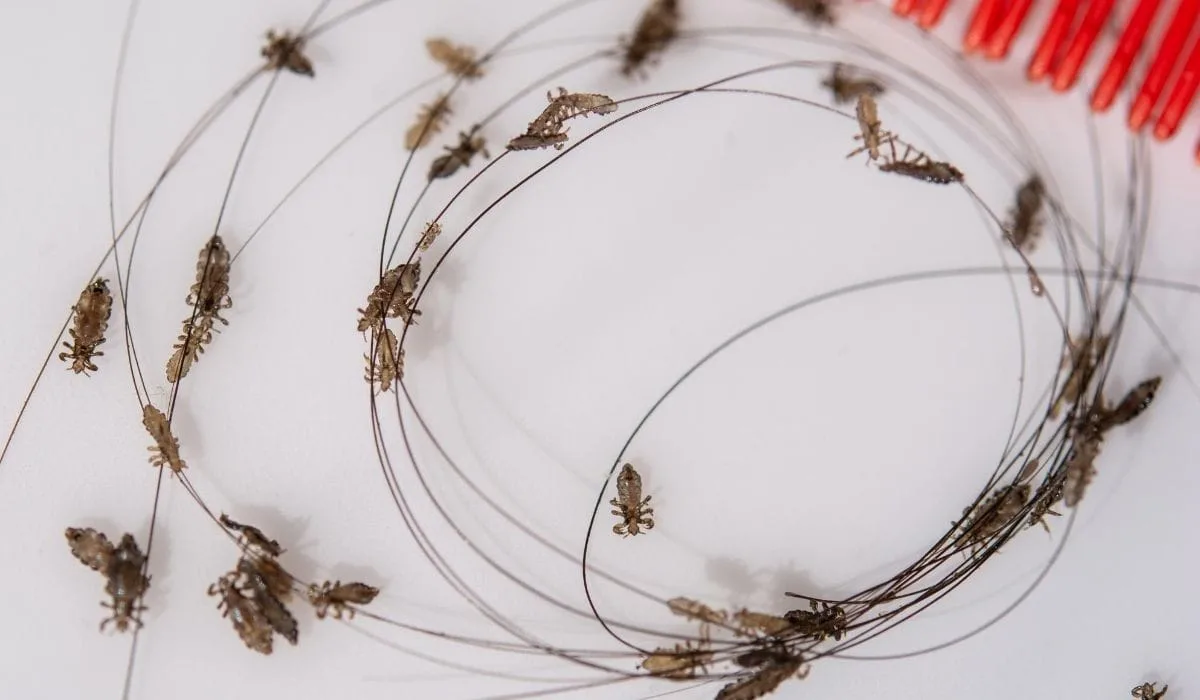
Horse lice are not transmissible to humans. It spreads to horses via close contact with other infested animals. Over the counter treatments are available and with care, the problem is quickly resolved.
Table of Contents
What Causes Lice Infestation in Horses
Lice infection in horses may be due to expansion of our herd or their participation in events that require them to come in close contact with other horses.
Whatever the reason may be, it is good to learn about lice infestation in horses, and also to know the strategies to prevent and treat lice infestations.
If not detected timely, lice infestation in your horses may cause a great deal of inconvenience to both the horse and the rider.
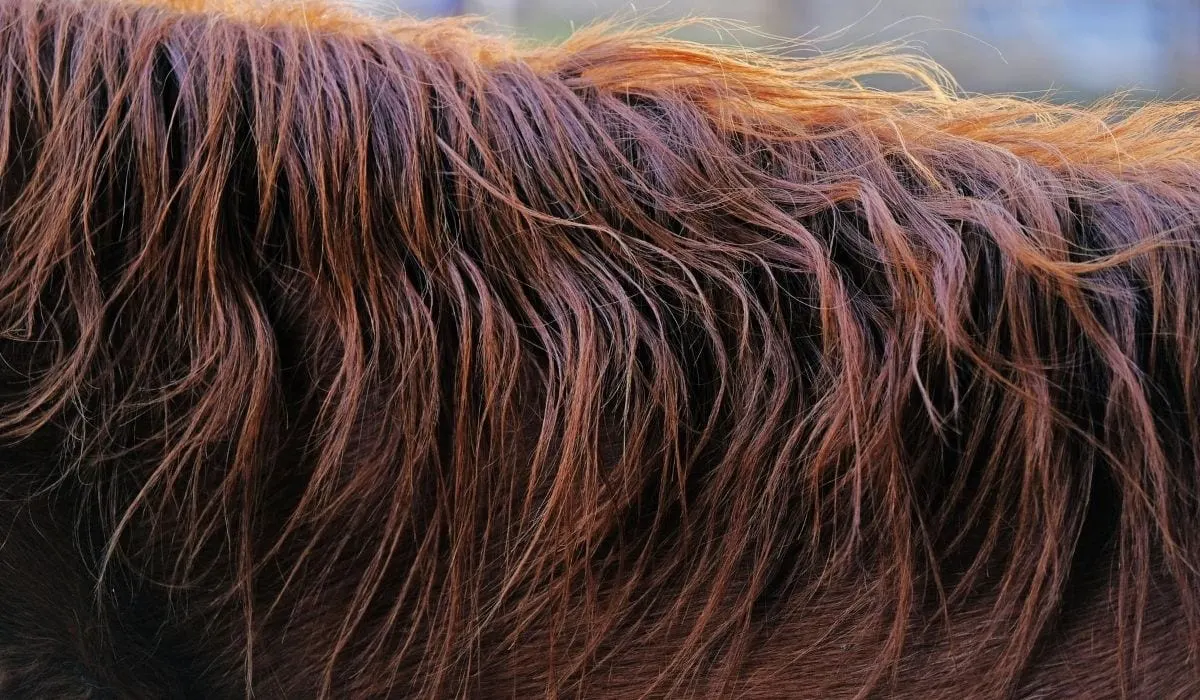
Lice infestation, also known as pediculosis, is extremely common in horses, especially in winter months. Lice are parasites that live on the exterior surface of the horse. Much like the human louse, lice cause itching and irritation for the horses they infest.
Read on to know more about lice infestation in horses and how to control it before it gets too late.
3 Different Kinds of Horse Lice
There are three species of lice that infest horses- Hematopinus asini, Bovicola equi, and Trichodectes pilosus. Out of these, the first one is a sucking louse, and the other two are biting lice. These three lice are prevalent throughout the USA.
Sucking lice are more damaging to horse than the biting kind because they may result in anemia. However, biting lice may cause more physical discomfort because of constant biting and crawling.
How to Identify Lice Infestation
Horses that have lice infestation will be visibly uncomfortable, rubbing and scratching themselves most of the time. You will find them rolling or itching a lot.
The itching usually advances to hair loss and it is only when the owner observes hair loss, most lice infestations are diagnosed.
Chewing lice will be mostly found on the mane, the head, the tail base, and the shoulders, whereas sucking lice are more commonly observed in the head, upper legs, neck, and back region.
The eggs of lice are more easily visible on dark-colored horses because they appear as shiny dots sticking to the hair.
Here is a point-wise list of possible signs and symptoms of lice infestation in your horse:
- Inflammation of sin
- Itching
- Biting own skin
- Dull-looking coat
- Scars
- Hair-loss
- Weakness
- Lethargy
- Constant rubbing against fences or walls
- Visible lice eggs (nits)
How are Lice Transmitted
Lice are not able to fly or jump, yet they spread from one animal to another quickly. Lice are easily passed on from one horse to another by physical contact, even if it for a small duration.
In addition, they can also be transmitted by common equipment like brushes. If the horses are kept close together in a trailer, it is likely that lice move on from one horse to the side-panel of the trailer before migrating on to the next horse.
Can Humans Acquire Lice from Horses
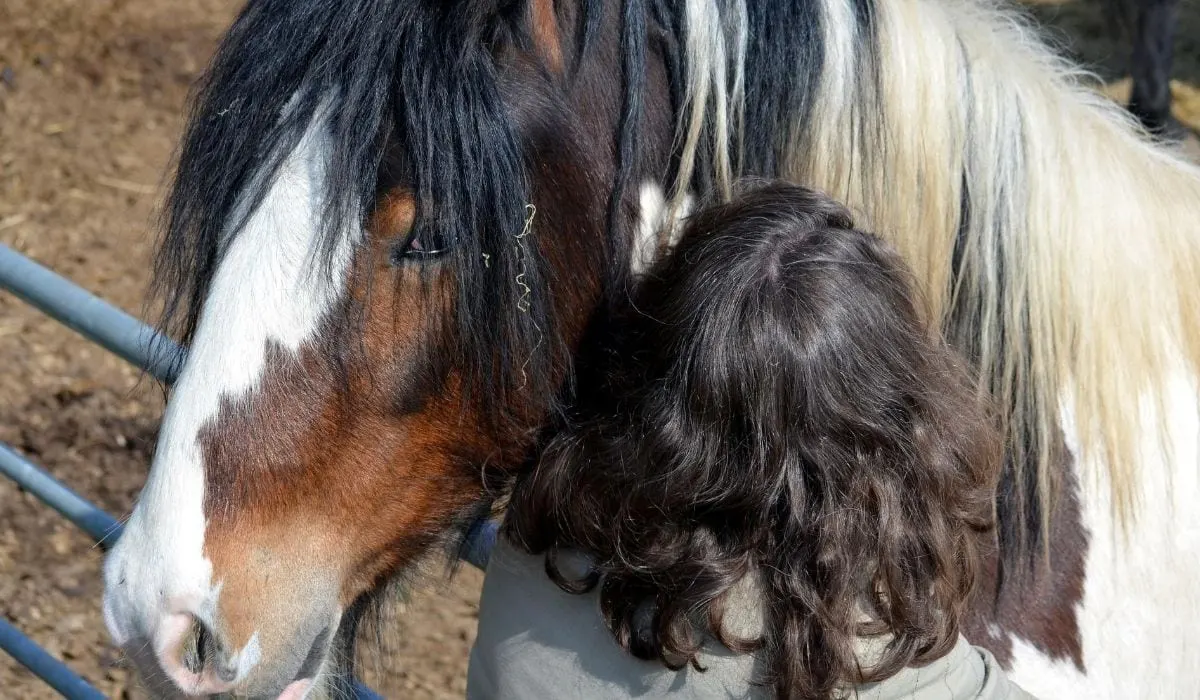
Lice are extremely specific to their hosts and lice from horses cannot be spread to humans or any other animal. However, humans can contribute to spreading them from one horse to another by passing lice that land on their gloves or equipment.
Therefore, if you notice lice infestation on one of your horses, it is best to take suitable precautions so that they are not passed on to other horses.
Rest assured, though, if you find horse lice on your body or clothes after you return home from the stable, they can “live” on you but cannot reproduce without their host, a horse.
A nice hot shower and fresh change of clothes is all you should need.
How to Prevent Lice Infestation
Horses must be kept in a well-lit and well-ventilated environment, free of dust and dirt. They should be cleaned regularly and groomed at scheduled intervals.
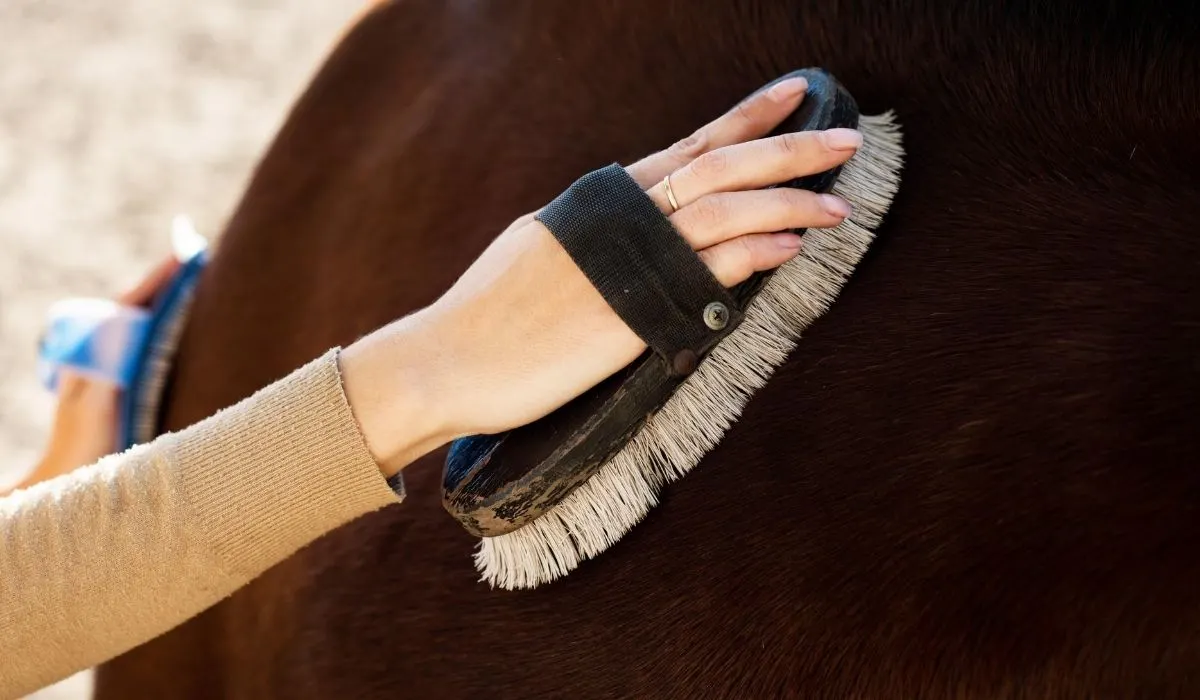
Regular physical inspection and timely response, as mentioned below, will prevent your horse from getting a lice infection.
A closed barn, one that does not have horses in or out, should have no issues with lice infestations. It is when horses come and go either at public facilities, show grounds or even organized trail rides, that transmission is most likely to occur.
Worse case scenario, if your horse gets infested with lice, the following measures will ensure that the infestation does not become bothersome.
All equipment of an individual horse must be cleaned, stored, and used carefully, avoiding contact with other equipment. If you notice lice infestation in a horse, it is best to disinfect all associated equipment individually with hot water followed by insecticide solution.
All bedding should be removed, cleaned or replaced. If horses are in a group, all horses should be cleaned and disinfected in case one horse gets infected.
In a nutshell:
- Keep different grooming tools for each of your horse
- Groom your horses regularly and completely each time
- Clean their equipment regularly
- Be watchful of the shine and quality of your horse’s coat
- Stay a safe distance from unknown horses until sure
- Keep infested horse away from other horses
- Be extra careful in winter time
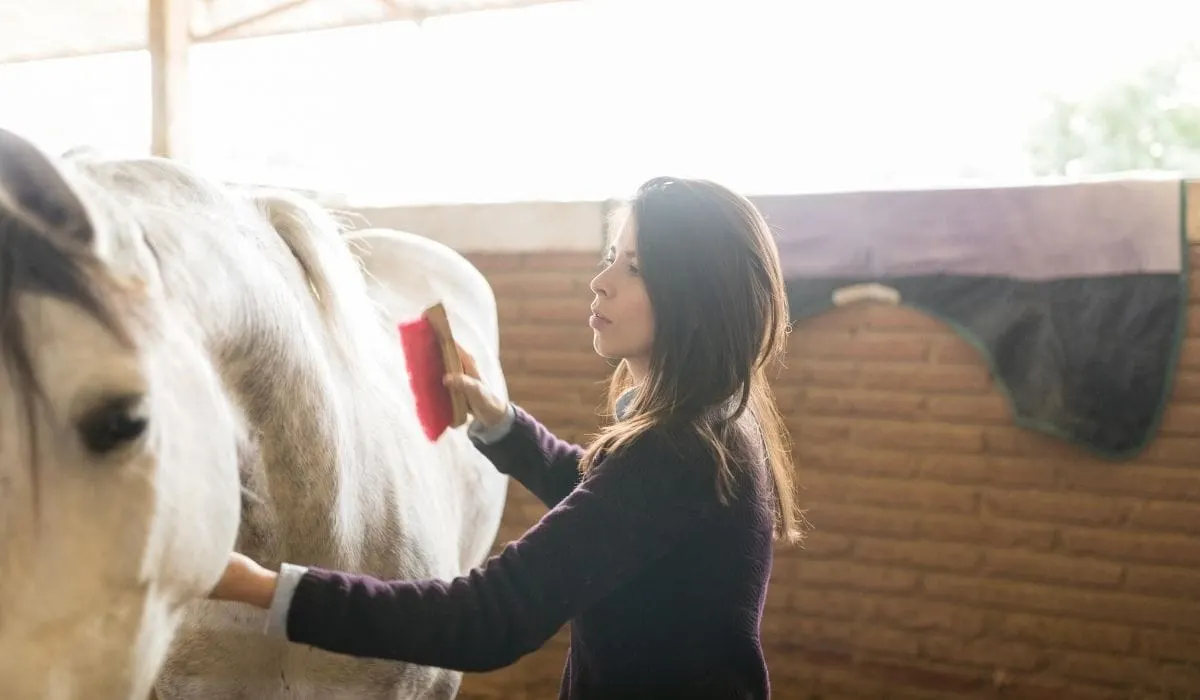
With these pointers, you will be able to prevent lice infestation in your horses, and in case of one of your horses becoming infested, you will be able to curtail the spread.
How to Treat Lice Infestations
The good news for all horse lovers is that it is fairly easy to control lice in horses, if proper and timely care is taken.
Clipping the coat of the infected horse is usually the first step in lice treatment. A reduction in the length of the coat is more likely to reduce the number of nits and make lice less likely to thrive.
In the winter, consider body clipping the horse if the infection is particularly bad. Long haired horses in cold climates are the hardest to treat. The cold weather typically prevents bathing and the long hair gives the lice a nice warm environment.
- For use on: dairy cattle, beef cattle, horses, swine, poultry, dogs, cats and livestock premises and homes.
- For lice and fly control on cattle, horses, and swine.
There are several products that can be used for controlling lice, for example, wipes, sprays, powders etc.
- Livestock Dust
- Permethrin Concentrate (dilute according to instructions before use)
Horses should be dewormed regularly as well. If the infestation has grown to dangerous proportions, it is best to have a treatment with an insecticide.
Most horse lice treatments contain the insecticide Permethrin, which is safe to use on horses and in most effective fly sprays. This chemical is, however, extremely toxic to cats.
Be sure that any lice or fly treatments are kept well away from any barn cats. Even seemingly minor exposure can prove fatal.
Follow-up After Lice Treatment
Once your horse has been disinfected, it is advisable to have follow-up checks for re-infestation. If you notice lice within a two-week period, the horse will require another round of treatment, and all steps of cleaning the stalls and equipment will have to be repeated.
Conclusion
As soon as you notice any signs or symptom mentioned above, you should bring it to the attention of your veterinarian. Upon confirmation of lice infestation, you should follow all the steps to prevent the infestation from spreading to other horses.
With regular care and vigilance, you will be able to keep your horses away from lice infestations, and if at all they acquire them, you will be able to get rid of them without much hassle.

